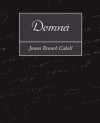Currently reading
Sin Titulo
The Old Gringo
Domnei
White Apples
Tarzan of the Apes
The Dead of Night: The Ghost Stories of Oliver Onions (Tales of Mystery & the Supernatural)
Swann's Way (In Search of Lost Time, #1)
The Land of Laughs
Voyage Along the Horizon
Palm-of-the-Hand Stories
 this is not a peppy book. there is some small joy, and moreover, a terrible beauty in the prose, and setting. quietly dark, spare, and poetic, the true deceiver manages to be blunt and subtle, transparent and opaque, all at the same time. it's not pat, and when it ended it left me uncomfortable, and uncertain as to whether some gains were worth the loss. i was also left asking myself a lot of questions about human motivations, and about truth, and fiction, and the measurements of both; how safely removed can anyone be from other people; and about the forms we've developed in order to live alongside each other, inside our own selves. i think the novel underlines how bitterly disappointing it can be to have your perception of your own lights dimmed or changed or put away when they are slanted through someone else's eye, someone's else way of being.
this is not a peppy book. there is some small joy, and moreover, a terrible beauty in the prose, and setting. quietly dark, spare, and poetic, the true deceiver manages to be blunt and subtle, transparent and opaque, all at the same time. it's not pat, and when it ended it left me uncomfortable, and uncertain as to whether some gains were worth the loss. i was also left asking myself a lot of questions about human motivations, and about truth, and fiction, and the measurements of both; how safely removed can anyone be from other people; and about the forms we've developed in order to live alongside each other, inside our own selves. i think the novel underlines how bitterly disappointing it can be to have your perception of your own lights dimmed or changed or put away when they are slanted through someone else's eye, someone's else way of being.this is the story of two outsiders, of two polar opposites: the reviled yellow-eyed katri whose dog has no name, and whose talents for mathematics, and honest objectivity are grudgingly respected, and the reclusive anna, a privileged artist who hides in the warren of her house until the thaw with a tenuous grip on anything that isn't fiction. between them, they have only the dog, and mats, katri's younger brother.
the novel begins in the harshness of winter when the daylight hours are few and one at once feels the sun-deprived stupor that lays over the little village. katri has come to realize that there is a way to fulfill her ambitions for her brother if she makes herself indispensable to the wealthy woman on the hill.
a passage i liked:
"Mats would go out on a the ice with his cod hook and when no one was in sight he'd go into the boat shed. Sometimes he'd go on with his work, usually details so trivial that no one noticed they'd be done. But most times he just sat quietly in the peaceful snowlight. He never felt cold."
i am in love with the word snowlight.
and i may veto reading any more books with dogs in them.
 1
1













